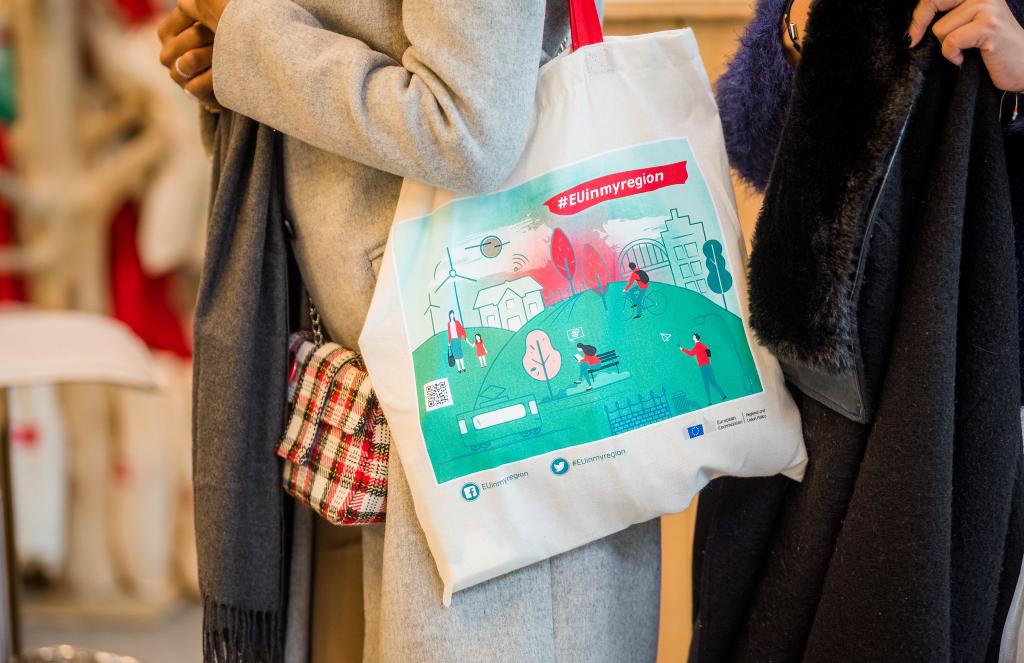Thessaloniki gets ready for its metro launch in November
The underground rapid transit lines have been under construction for almost two decades due to various project delays
 TheMayor.EU logo
TheMayor.EU logo 
2020 European Week of Regions and Cities, Source: European Week of Regions and Cities on Flickr / CC BY-NC-SA 2.0
One of the largest forums on regional policy is expected to attract a record number of visitors over the next 3 weeks
Starting today, the European Week of Regions and Cities invites us to its 18th edition. And just like 2020 was different than anything we have seen lately, the major European event on regional policy promises to be like no other in history, but in a good way.
Two main changes will dominate this year’s event – first, it will be available entirely online, second – it will extend for three weeks instead of just one, each focusing on a different topic. See what is in for you over the period of 5-22 October.
The opening week will be dedicated to the various ways to empower citizens. Local and regional governments, but also organisations will tell about their successful experience in forming better local democracy.
The European Commission will explain how it communicates the Green and Digital Recovery and in particular – the corporate communication campaign around #NextGenerationEU and how the plan reached citizens in the uncertain coronavirus-dominated times. Follow the first seven days starting from today at 11:30 CET.
The days in the middle will focus on the core of each Week of Regions and Cities – cohesion policy and cooperation. It will see the inauguration of the first EU Annual Regional and Local Barometer, debated by CoR President, Apostolos Tzitzikostas and President of the European Commission, Ursula von der Leyen.
This week also involves the official opening of the event on 12 October and its closing on 15 October with the participation of Elisa Ferreira, Commissioner for Cohesion and Reforms and CoR President Tzitzikostas. The Citizens' Dialogues which are public debates between European Commissioners and moderators are not to miss on the same evening.
Finally, make sure to follow the launch of the Quality of life in European cities report 2020 on 13 October.
The event will conclude with four days dedicated to environmental policies. This final conference week can be regarded as a separate but connected event, with a high-level opening ceremony streamed from Lisbon, instead of Brussels, on 19 October.
The green week will focus on global biodiversity and will feature the participation of Commissioners Sinkevičius (Environment, Oceans and Fisheries) and Ferreira, as well as the Mayor of Lisbon and national officials. Among topics like funding for green transition and circularity and sustainable mobility, this week will demonstrate how cities can be a platform for green innovation.
If you are already puzzled about how to combine your busy schedule with the essential items on the agenda, here is an overview of the main sessions, and a link to the full programme to choose from.
At the time of publishing this article, the registration for the first week dealing with the topic of Empowering Citizens is closed. However, if you are interested in Cohesion and Cooperation and Green Europe, you have until 7 and 14 October respectively to register.
Discover the full programme and registration information on the official event page and follow TheMayor.EU for an overview of the most important developments.

The underground rapid transit lines have been under construction for almost two decades due to various project delays

Now you can get your wine in Talence by paying directly in Bitcoin

That’s because the state has to spend money on updating the railway infrastructure rather than subsidizing the cost of the popular pass

Rethinking renewable energy sources for the urban landscape

The examples, compiled by Beyond Fossil Fuels, can inform and inspire communities and entrepreneurs that still feel trepidation at the prospect of energy transition

Now you can get your wine in Talence by paying directly in Bitcoin

The 10th European Conference on Sustainable Cities and Towns (ESCT) sets the stage for stronger cooperation between the EU, national and local level to fast track Europe's transition to climate neutrality.

At least, that’s the promise made by the mayor of Paris, Anne Hidalgo

The underground rapid transit lines have been under construction for almost two decades due to various project delays

At least, that’s the promise made by the mayor of Paris, Anne Hidalgo

Hostal de Pinós is located in the geographical centre of the autonomous region

Despite its church-y name, the district has long been known as the hangout spot for the artsy crowds

Urban dwellers across the EU are having a say in making their surroundings friendlier to people and the environment.

Forests in the EU can help green the European construction industry and bolster a continent-wide push for architectural improvements.

Apply by 10 November and do your part for the transformation of European public spaces

An interview with the Mayor of a Polish city that seeks to reinvent itself

An interview with the newly elected ICLEI President and Mayor of Malmö

A conversation with the Mayor of Lisbon about the spirit and dimensions of innovation present in the Portuguese capital














